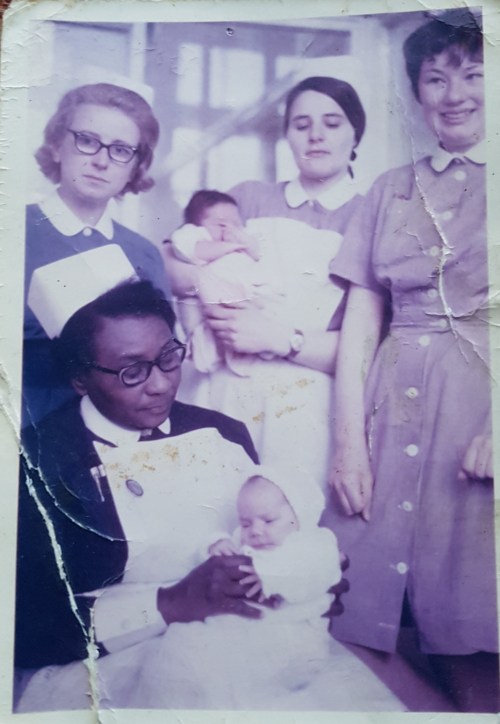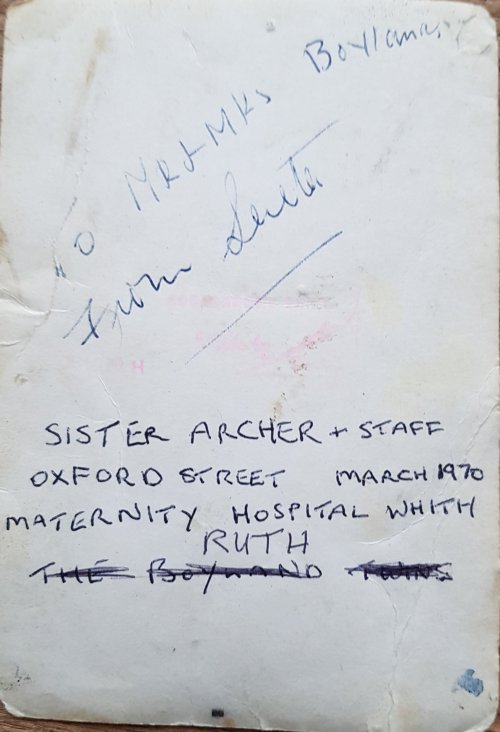With the proliferation of #BlackHistoryMonth hashtags haunting various social media sites [I’m sure haunting is the correct term during October], you may have noticed that October is Black History Month in the UK.
It is the time that we celebrate our diversity, learn about other cultures and the people who have settled in Britain in the near and distant past. While we embrace our differences, during BHM we concentrate on the stories of people of African or Afro-Caribbean descent. However, October is not the only time we celebrate diversity, in February we have Chinese New Year and in August the colourful Notting Hill Carnival, to highlight just a couple of cultural events, but BHM offers us a chance to reflect on our shared histories and to celebrate those who have overcome disadvantages to achieve much, or indeed exceptional people who deserve to have their stories told to a broader audience, who may otherwise remain hidden to the historical record.

My own little piece of #BlackHistory is thus: here I am in the arms of Sister Archer, one of the midwives who worked at Oxford Street Maternity Hosptial, Liverpool, in 1970. I’m a twin, although it’s not my twin being cradled top centre, you can see on the reverse of the photograph my father had written ‘the Boyland twins’ until he was corrected otherwise. We were born premature, my sister, the eldest twin by three minutes, weighed 5Ib 11oz and me 3Ib 10oz. I remained in an incubator in hospital for six weeks after my birth, my sister was able to go home after a week. I look like a fairly normal sized baby, so I’m assuming this was towards the end of my extended stay in hospital.

I adore this photo, it’s a bit tatty these days, but to me, it represents not only my history but also a history of the NHS and the UK in general.
With the advent of the National Health Service in 1948, a recruitment drive was necessary to employ nurses to support initiatives. Nurses arrived in the UK primarily from the Caribbean, but also from other parts of the Commonwealth, such as Malaysia and Mauritius. The popularity of the new NHS meant that there was not enough staff to care for the public and thousands of women headed to the UK, the ‘mother country’, to train and work in the nursing profession.
For the nurses who came to the UK life wasn’t all rosy. They suffered racism; some parents refused to let district midwives come into their homes, others didn’t want to be touched by black nurses. And in the NHS itself, many were funnelled into the course of the lesser qualification of State Enrolled Nurse rather than the superior State Registered Nurse.
Nurses that wanted to return home found that they couldn’t afford the trip. After a month’s work, they might have had £9-10 spare and the flight home to Jamaica cost a prohibitive £500. Others made lasting friendships and found that midwifery gave them a level of status that standard nursing did not.
The documentary, Black Nurses: the Women who Saved the NHS, link below, affords us a fascinating insight into black nurses in the NHS. It informs us of their struggles and their joys, and imparts a rich history that runs parallel to the 70 years of the NHS and culminates with the unveiling of a statue dedicated to Mary Seacole, a Jamaican nurse and contemporary of Florence Nightingale, who travelled to the Crimea to nurse British soldiers during the Crimean War. Seacole’s story has only now been added to the curriculum but in recent years has become more widely recognised as the earliest known black nurse to care for British citizens.
Sources:
https://www.theguardian.com/society/2008/jun/18/nhs60.nhs2
https://www.youtube.com/watch?v=sr8Ul6FTZzw
BBC. Black Nurses: the Women who Saved the NHS


What a lovely photo! And excellent timing with all the wind rush scandal things happening at the moment. I’ll see if I can view that documentary here. It sounds fascinating.
LikeLiked by 1 person
Thanks 🙂 I did enjoy the documentary. There’s some great film clips and interviews.
LikeLiked by 1 person
That’s a great photo Ruth!
LikeLiked by 1 person
Thanks 🙂
LikeLike
What a fabulous photo! And thank you for highlighting the story of these women.
LikeLiked by 1 person
Thank you 🙂
LikeLiked by 1 person
What a lovely keepsake to have.
LikeLiked by 1 person
Such a great photograph Ruth and as always a very interesting article .
I’ll look forward to the documentary.
Thanks
LikeLiked by 1 person